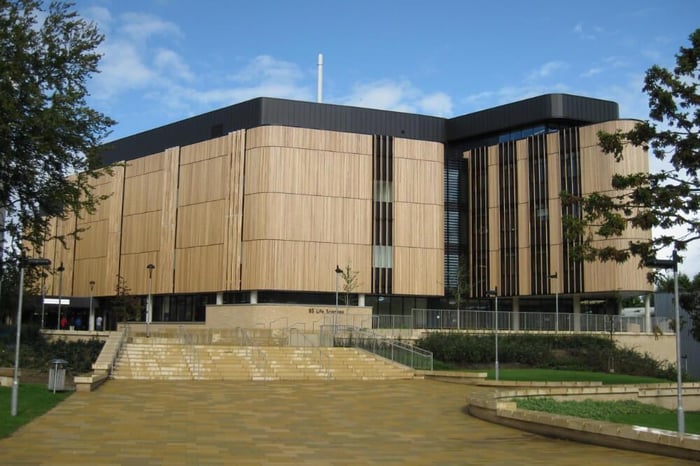UEA Medical School Interview Guide
Norwich Medical School is based at the University of East Anglia. It has been running a five-year MBBS course since it opened in 2002. By 2019 intake, there will be 208 medical students per year. UEA prides itself on being a teacher of 21st-century medicine.

1. About your interview
All candidates who are suitably qualified are invited to interview. If there are too many applicants for the number of interview places, then applicants are assessed by their GCSE grades and University Clinical Aptitude Test (UCAT)scores, and the highest scorers invited to interview.
Each interview lasts approximately 50 minutes. It is an OSCE (Objective Structured Clinical Examination) style interview and thus adopts a Multiple Mini-Interview (MMI) approach. The applicant is rotated through a series of stations, each lasting 5 minutes. There are six in total, with a 90 second changeover time between each station.
The university states that they are looking for:
- An acceptable approach to decision making even when given incomplete or conflicting information. You may be presented with a scenario and have to make a difficult decision. The interviewer will be looking at your reasoning and the importance you assign to different aspects of the problem. The important point here is ‘incomplete or conflicting information’.
- The ability to learn and work effectively in partnership. Medical students do a lot of work in small groups. The interviewer needs to know you cope well when working with others. You must demonstrate that this will not affect your learning or the learning of others.
- A caring and supportive attitude. The interviewer will want to see that you are empathetic and compassionate. This is really important as a doctor. An example station could be a role play when you have to deliver sensitive information to a topic.
- An empathetic and caring approach. As above, you need to show that you can conform to moral guidelines and deal with patients in a kind, yet professional manner.
- Insight into medicine as a career and personal suitability for the profession. This station will involve typical questions such as ‘why do you want to be a doctor’. The interviewer will want to see that you understand the role of a doctor, taking into account both the positives and negatives of the job. They may ask you to discuss what you’ve seen in work experience and how this accentuated your passion for medicine. It’s important to show how you’ve developed your interest in the subject, maybe through wider reading or extra-curricular activities. Having a real desire and insight into the career will be ever so impressive.
- Honesty, integrity and personal effectiveness. It’s important to be organised as a doctor. Life can be stressful, so having something to take your mind off things can be very beneficial. Honesty is also important, and this can be hard to learn. Patients trust you to be confidential.
Following the interview, successful candidates will be those with the highest combined interview and UCAT overall score. The Situational Judgement component of the SJT contributes to the overall interview score.

2. About the course
The course operates a problem-based learning (PBL) teaching approach. It is organised into modules based upon the different body systems. Medical students are encouraged to apply their scientific foundations to virtual simulations as well as real-life patients.
Structure
Each year is composed of 5-6 modules. Every year has a fitness to practice module and an integrative period. In addition, specific modules are studied in each year:
- Locomotion; interprofessional learning; the human lifecycle.Blood and skin; circulation; respiration.
- Digestion/Nutrition; homeostasis and hormones; the senses.
- Growth and development; mind and body; reproduction; elective.
- Emergency care; clinical remediation; student assistantship.
Look at the Norwich Medical School UEA website for more information.
Teaching
The small group PBL sessions are supported by a weekly programme of lectures and seminars, as well as placements in hospitals. UEA teaches through:
- Lectures, seminars and practical anatomy classes - these cover the core scientific knowledge.
- Small group working - PBL is used here, to encourage students to apply their knowledge to clinical cases.
- Consultation skills tutorials - actors are used to simulate patient scenarios.
- Clinical skills training - both practical and simulated.
- Clinical placements - these begin very early.
- Shadowing - a one-on-one experience with a doctor. This is to aid the transition from university to life practising medicine.
- Developing professionalism - a development of the values and behaviour required to be a safe and respected doctor.
Assessment is through OSCEs, research assignments, short answer and single best answer questions. There is also a student selected study component of the course, where students must complete an audit portfolio.
Clinical work
From the very beginning of the course, students experience clinical practice at least once a week. At the end of every module, medical students complete a month-long secondary care placement. Clinical experience occurs in acute hospital wards, specialist units and primary practice, with students encouraged to link their placements to what they’ve learnt in classes.
Anatomy
At the University of East Anglia anatomy suite, 8-10 students are assigned a cadaver. Students are instructed on what to do then encouraged to perform the dissection themselves. It builds on the course material covered in the lectures.
Intercalation and elective opportunity

3. theMSAG tips to prepare for your UEA interview
-
Consider your suitability for Problem Based Learning
UEA’s PBL-based course focuses your week’s learning around a case. In the small group sessions, you talk about the case. In the week you develop an understanding of the case through the lecture material and placements. This means you get the chance to ask a lot of questions and really delve deep to discover what is wrong with the patient. One of the qualities they are looking for in your interview is a ‘personal suitability’ for the profession, so make sure you can show them how you will adapt to the PBL style of learning (eg. how have you demonstrated motivation and self-directed learning previously).
Practice your problem solving and reasoning
- You may be presented with a scenario and have to make a difficult decision, so before your interview learn about GMC duties of a doctor, think about what it means and how you can apply it to a real-life situation. We would also recommend practising different situational judgement questions and be able to explain your reasoning.
Prepare examples of your personal qualities
- UEA medical school assesses several personal qualities in the interview, including teamwork, empathy and compassion. We would, therefore, advise that you prepare a few examples of times when you have demonstrated these key skills and reflect on why they are important in medicine and how it will make you a better doctor.
Think about how you can demonstrate insight into medicine
- The interviewers are looking for someone with an ‘insight into medicine’ so be prepared to answer questions about your work experience, the general state of the NHS and current NHS hot topics. In addition spending, time every day practising your answers to these 50 common medical school interview questions which will help you be able to form fluent answers once in the interview.
- We hope that you have found these Norwich Medical School at the University of East Anglia (UEA Medicine) tips useful! If you have any questions or would like more information, don't hesitate to contact us at [email protected].
-
--------
Disclaimer: The information used for this blog post has been found on the Norwich Medical School UEA Website. These were accessed during the 2nd week of December 2018. Please note that the course structure and interview style is subject to change, and you are advised to confirm before attending.
-



